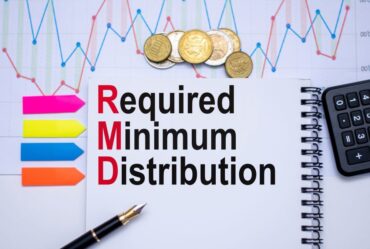If you’re like most people, you’re looking for ways to reduce your taxes and keep more of your hard-earned money. Well, one option that might be off your radar is a health savings account (HSA).
What’s the Deal with an HSA
HSAs are single-handedly the most overlooked tax and investment vehicles out there. HSAs offer triple tax advantages:
1. Contributions are pre-tax.
2. Investment earnings grow tax-deferred.
3. Withdrawals for qualified medical expenses are tax-free.
But what you might not know is one of the best-kept secrets. An HSA can also be used as a retirement savings account. When you turn 65, an HSA can even be used for non-healthcare costs, penalty-free!
So, effectively, if you are in good health, maintain a high-deductible health plan, and over-save in this account, after age 65, you can use it for either medical expenses or retirement expenses.
If you withdraw from your HSA for its intended purpose, medical, then the growth of the account will be tax-free and you will have avoided tax on all contributions, earnings, and withdrawals. Thus, as they say, the HSA is triple tax-advantaged. And if you decide to withdraw for non-medical after age 65 then you will still have avoided the tax going in and along the way, only paying tax just like you would on a Traditional IRA on the way out.
Whether you’re just starting out or have been using HSAs for a while, I think you’ll find something useful in today’s post. So let’s get started!
HSA Savings Roll Over Year-to-Year
One of the great things about HSAs is that the money in your account rolls over from year to year. That means that if you don’t spend all of the money in your account one year, it stays there for future years. This is different from other types of health care accounts, such as Flexible Spending Accounts (FSAs), which generally have “use it or lose it” rules.
With an HSA, you can keep saving year after year until you need the money. This makes HSAs a great way to save for future health care costs, such as dental work or eye care. And, since the money in your HSA is yours, you can even use it to pay for health care costs for your spouse or dependents. Also remember, when you turn 65 you can use the HSA for any purpose, not just medical thus making it a great tool to over save in to get tax breaks today!
The Money in an HSA Grows Tax-Free
One of the best things about an HSA is that the money you contributed initially is pre-tax, the money grows tax-deferred and when you use the money to cover qualified medical expenses it is 100% tax-free. And, if you don’t use all the money in your account during one year, it rolls over into the next year. This means that your HSA can grow to be a sizable nest egg that can help cover your medical expenses in retirement. And don’t forget that you can use it for any purpose after age 65.
Be sure to invest the money in your HSA rather than keeping it in cash. Many HSAs offer investment options, such as mutual funds and ETFs, that can help you grow your money. While the tax benefits of an HSA are great, there are a few things to be aware of before you open one.
First, you can only contribute to an HSA if you have a high-deductible health insurance plan. This means that your health insurance plan must have a deductible over the IRS limit for the calendar year. If your health insurance plan doesn’t meet this criteria, you won’t be able to open an HSA.
Second, you can only contribute to an HSA if you’re not covered by another health insurance plan. This includes Medicare and Medicaid (see MSA’s). If you’re covered by any other health insurance plan, you’re not eligible to contribute to an HSA.
Finally, you can only contribute to an HSA if you’re not claiming a tax deduction or credit for medical expenses. If you claim a deduction or credit, the IRS views this as double-dipping.” Be sure to consult with your tax or financial advisor to determine that you’re eligible for an HSA and the best way to go about investing within the HSA.
Using an HSA in Retirement
Health Savings Accounts (HSAs) offer a tax-advantaged way to save for healthcare expenses. Contributions to an HSA are tax-deductible, grow tax-deferred, and can be withdrawn tax-free for qualified medical expenses.
If you’re over age 65, you can still take advantage of an HSA to cover eligible medical expenses. You can also use HSA funds for non-medical expenses, and you will not pay the withdrawal 20% penalty. If you take out HSA funds for non-medical and you are under 65, then you would pay the 20% penalty. You must be over 65 for this strategy to work. However, there are some strategies that savers can use to minimize the tax impact.
One of the best advantages of an HSA being used as an IRA in retirement is that it has no required minimum distribution (RMD) from the account. So, again, if you have oversaved in your medical account, you have claimed many tax breaks along the way and this account will allow you to stretch and maximize every dollar you earn, creating wealth.
If you’re planning for retirement, an HSA can be a valuable tool in tax planning. When used correctly, an HSA can provide a triple tax advantage: tax-deductible contributions, tax-deferred growth, and tax-free withdrawals for qualified medical expenses.
Paying from Checking Account Now and HSA later
One thing I’ve heard from a client was, “Matt, it would be so nice if I could keep my HSA invested and use a checking account today. This would let me grow my HSA account larger for longer. Can you pay your qualified medical expenses from a checking account, hang on to the receipt and then withdraw from your HSA in the future?” The answer is yes!
With an HSA, you can pay for your qualified medical expenses from a checking account and then reimburse yourself from the HSA at a later date. But make sure to track your expenses. Whether using an excel file, paper receipts, or some budgeting tool, this is a great way to take advantage of the tax benefits of an HSA, while still paying for your current medical expenses.
The Bottom Line
An HSA is triple-tax advantaged. It is one of the most under-utilized tools out there for tax-savings and investing for your future. You can compound this account with a long-term mindset because it allows you to pay back your expenses at a later time. Thus this means you can hold onto receipts and pay from your checking account today, allowing your HSA to compound and pay yourself later. Using the account in retirement allows you to over-save in this account and utilize tax-breaks that will accumulate more wealth for you. This means you can work less hard to earn more for yourself by utilizing this account. This is one time Congress really got it right!
What are the Next Steps
If you have questions about how an HSA might work in your situation, or how you can use it within your retirement plan, then contact us. We will help you determine if an HSA is right for you and how to make the most of this tax-advantaged account.
Matt Ward, CFP®
Schedule free meeting to determine if an HSA is right for you.
817-238-6300
Matt.Ward@newcenturyinvestments.com
*Keep in mind that you must maintain a High Deductible Health Plan as determined by the IRS. There are nuances involved. Always make sure that you’re consulting with your trusted advisor about your specific situation. Not everyone is eligible for an HSA.





